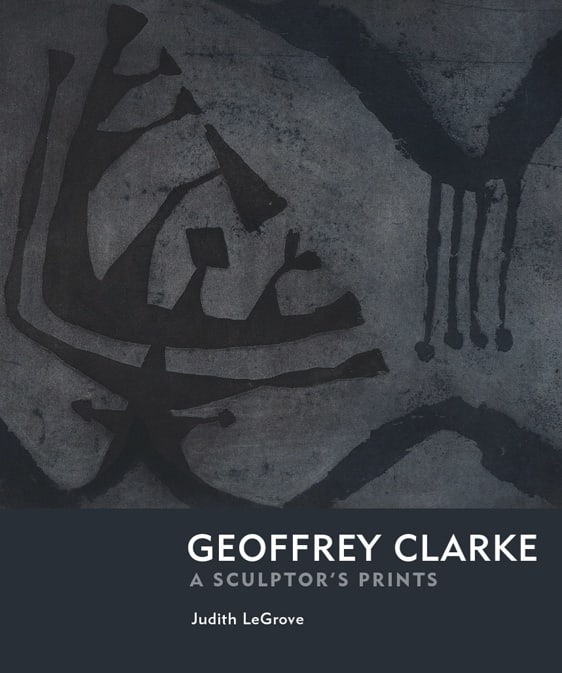Geoffrey Clarke: A Sculptor’s Prints is the first in-depth study of the graphic work of Geoffrey Clarke, and includes a catalogue raisonné of his etchings and lithographs from 1948 to 2003.
Best known as a sculptor, Geoffrey Clarke (b.1924) exhibited with the group of ‘young’ British sculptors at the 1952 Venice Biennale: Robert Adams, Kenneth Armitage, Reg Butler, Lynn Chadwick, Bernard Meadows, Eduardo Paolozzi and William Turnbull. Through this group, which Herbert Read identified as ‘participating in a general revival of the art of sculpture,’ Clarke touched the circle of the British avant-garde in the early 1950s, gaining prominence and a considerable degree of fame for his work. Clarke’s prints were shown at three Venice Biennales.
In the early to mid-1950s Clarke used iron, stained glass, enamel and printmaking techniques to create linear images of Man. By the late 1950s he had adopted aluminium, his technique leading to the greatest number of public commissions (including several for the new Coventry Cathedral) of any post-war British sculptor.
Geoffrey Clarke has produced more than 200 etchings, some 3,500 monotypes and more than 20 lithographs. The book addresses for the first time the centrality of graphic work to Clarke’s practice, relating it not just to his sculpture but to his work in stained glass, textiles, furniture and wallpaper.
A final section documents the channels through which Clarke’s prints were commissioned, exhibited and disseminated during the 1950s and 1960s, making his work among the most widely seen and ‘marketable’ of British artists during the flowering of mid-twentieth-century British print making.
There are approximately 275 reproductions plus archive photographs.The Henry Moore Foundation have supported publication with grant aid.

